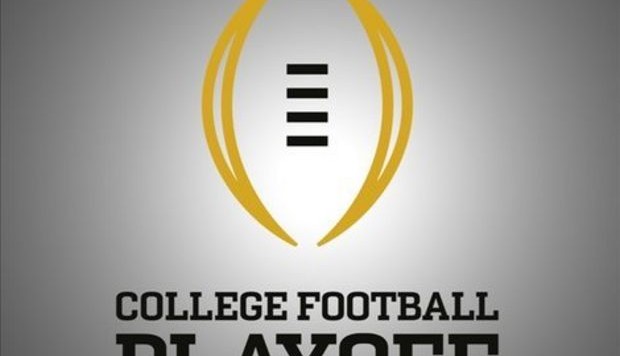The only bad thing about the College Football Playoff is that the selection guidelines aren’t completely clear. Sure, we know that the Selection Committee is supposed to consider “strength of schedule, head-to-head results against common opponents, championships won and other factors” when making its decision, but what does that really mean? Are some components more important than others, or does each carry the same weight?
That last question is virtually impossible to answer, as the Selection Committee hasn’t had to make any difficult choices yet. Yes, putting Ohio State in the field over Baylor in 2014 seems like a tough call, but the Bears’ weak non-conference schedule that season made the decision a no-brainer. Likewise, Stanford’s two losses made it easier for the committee to pick the four teams for last year’s field.
Will that be the case in 2016? It’s difficult to tell since the season hasn’t started. However, here are a few hypothetical situations that could make the Selection Committee have to answer some very tough questions.
Scenario 1 – BYU or Notre Dame finish the season undefeated. All five power conference champions finish with one loss.
Given the depth that exists in college football today, it’s highly like that any team will go undefeated. But, if either the Fighting Irish or the Cougars were to finish with a perfect record, the committee will have to provide some very specific answers. Since Notre Dame and BYU both play a very difficult slate of games this fall, strength of schedule would clearly work in their favor. The only way the Selection Committee could justify leaving either team out is if it chooses to place more emphasis on winning a conference championship.
Would the committee really leave two Power 5 conference champions out of the field in order to reward a perfect season? Or, would it go on record as saying that winning a conference championship is more important than strength of schedule?
I don’t know which option it would choose, but couldn’t wait to watch it unfold.
Scenario 2 – Clemson finishes the regular season undefeated, but loses to Miami in the ACC Championship game. To further complicate things, Florida State finishes with only one loss, handing the Hurricanes their only defeat of the year.
This situation brings up an important question that the Selection Committee has never fully addressed: is the goal of the College Football Playoff to pick the four best teams in the country to play for the national championship or is it to reward the four highest rated conference champions?
The case above would force the committee to address that question. After all, in order for Florida State to finish with one loss, it would have to beat both Florida and Ole Miss. This means the Selection Committee would have to choose among the conference champion (Miami), the team that finished the regular season unbeaten (Clemson) or the team that played – and had success against – the toughest schedule (Florida State).
Regardless of which team the committee chooses, it’s going to upset at least two fan bases. However, the decision would shed some light on whether conference championships are more important than strength of schedule and head-to-head competition.
Scenario 3 – Houston defeats Oklahoma, but loses a game in AAC play. The Sooners rebound to beat Ohio State in week 3. All three teams win their respective conference championships and finish with just one loss.
If you really want the Selection Committee to give very specific answers, this is a scenario that you want to see happen. Since all three teams would finish with identical records and conference championships, the committee would have to look at strength of schedule, head-to-head matchups, and record versus common opponents.
Should Houston get in over Oklahoma or Ohio State, we’ll know that individual matchups hold more weight than strength of schedule. If the Sooners and/or Buckeyes get the nod, we’ll know that the reverse is true, and that playing tougher competition is more important.
Either way, the committee isn’t going to like explaining its decision. It will be forced to either reward a team that played a lesser schedule over two conference champions or it will leave out a team that has a head-to-head victory over one of the teams in the field.
Wouldn’t that be a fun interview to watch?
Scenario 4 – Alabama beats LSU in a close game. Ohio State wins the Big Ten, but loses to Wisconsin during the regular season. LSU finishes with one loss and defeats Wisconsin soundly in the season opener.
The biggest burning question surrounding the College Football Playoff is whether it’s possible for a league to get two teams into the field. The Selection Committee is extremely fortunate that it hasn’t had to answer this question yet.
Under this scenario, it would have to. By virtue of its Big Ten championship, the Buckeyes would seem like a sure bet to qualify for the playoff. Yet, when distinguishing between teams with similar resumes, the committee must consider record versus common opponents and strength of schedule. Would the Selection Committee give the nod to the Tigers, who would have a better record versus common opponents and a stronger strength of schedule than the Buckeyes? Or, does it choose to reward Ohio State for winning a conference championship?
I don’t know. However, I couldn’t wait to see the committee explain the basis for its decision.
***
In the end, all of the scenarios above would produce the same result: answers. At the end of the day, isn’t that what we all want?

